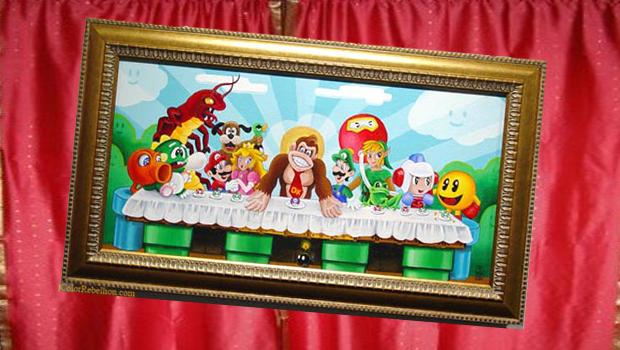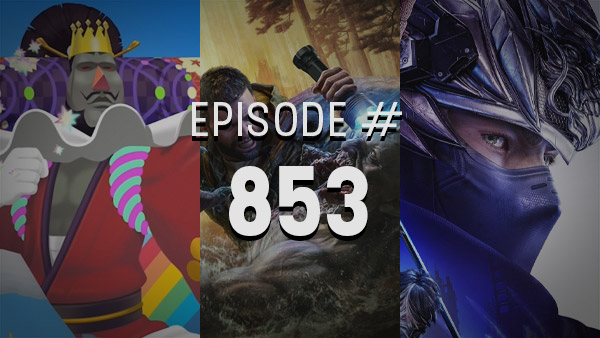Your login information returned multiple users. Please select the user you would like to log in as and re-type in your password.

I've no clue why I was murdering everything that moved. It's what I am supposed to do, right? I was never quite sure. To be honest, I never contemplated stopping either. It was simply to much fun to continue on this gore-riddled rampage. Then it happens. Everyone's dead. The "high" from the adrenaline has run its course. I'm left with slaughtered corpses and blood-soaked hallways too slippery to slide through. What have I done?
The untuned numbing tone of terror slips in. You walk passed the gore you leave behind in revelations of disappointment and disapproval. None of it stopping you from continuing.
Hotline Miami plays like an 80's coke-binge. Its non-stop, heart-racing, and encouraging as the "high" sets in over Moog synthesizers. Pushing for more, as the drug will do. And when it's over, your ashamed of how far you've gone. Left with only the question: why? Finding only the answer: because...it was fun.
Some of my favorite games are those that leave the player with though-provoking impressions. The kind which peels back layers of interpretation like an onion. Artistic commentary that expands far beyond the simplistic ideals of "just a video game". It's not often we find these kind of experiences in gaming. While the medium of music, and film, have been delving in undertones, symbolism, and metaphors for decades, too many video games pass up the opportunity.
Hotline Miami is much more than just a thrill ride through violence and criminal-underworlds. It makes comments about violence in video games and motivations for our violent actions, while never really spelling it out. It's great art as it should be; transcending and interpretable. A rare piece of art in an industry that's been fighting on the front-lines for its credit as such.
So, why is it more of the games we play fail to leave the same impression?
[Popular Opinion is a weekly editorial, begging questions to be answered by our readers. We want to know what YOU think. Leave comments below, explaining. Who knows, you're comments might spark next weeks topic.]




Comments
13 years, 1 month ago
Interesting read. I'd say music and even art itself (i.e. modern art) can sometimes fail to leave much impression. Certain rap artists don't leave me particularly inspired, nor does a blob of clay representing a piece of art. Perhaps we're just not looking at them in the right light.
13 years, 1 month ago
I think it's quite difficult to create games that have philosophical messages or questions on current issues that attract the normal gamer. When they do work they're are often highly praised i.e Deus Ex: Human Revolution or Heavy Rain. I recently purchased Limbo and even though I have yet to finish the game I am surprised how the art style is so simple yet it fits the mood of the game perfectly. I remember how during one older cocktail time Joseph, Nolan and Nick were giving there own interpretations on the ending of the game. I feel when a game can make you do that then it could be considered as a piece of art or literature. These days at least indie developers,and some game companies, are willing to take the risk to make video games which as you described, contain artistic commentary.
13 years, 1 month ago
"So, why is it more of the games we play fail to leave the same impression?"
The mood of the player and the hype of the game may have something to do with it. What if Gears of War was marketed as a hyper-realistic look at the misery and violence soldiers experience? I know there are some scenes in Gears 2 at least that could carry that claim if it was hammered into its audience's mind. However, it'd still be the same game. So point of view, which is a major paradox when talking about art, is a factor also. I didn't get a trippy, long-lasting experience out of Killer 7, even though that's what some people said it was, because I wasn't looking for it, I wasn't in the mood for it most likely, and it didn't strike me that way as its story got more over-the-top and its potential "statements" got harder to recognize.